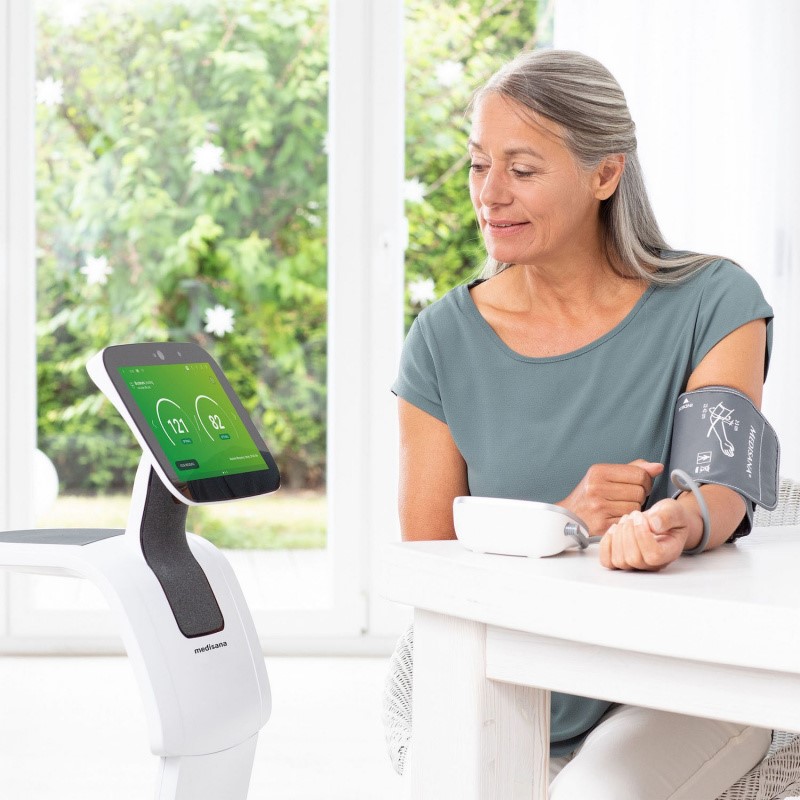
In an era where technology seamlessly integrates into our daily lives, smart home devices are revolutionizing how we manage and monitor our health. The advent of Smart Home Health Devices has not only enhanced convenience but also significantly improved health outcomes for individuals. This article delves into the multifaceted role of these devices in health monitoring, exploring their benefits, functionalities, and future potential.
The Evolution of Smart Home Health Devices
Smart home technology has come a long way from its initial focus on convenience and entertainment. The integration of health monitoring capabilities into smart home devices marks a significant shift towards proactive and preventive healthcare. These devices, equipped with advanced sensors, artificial intelligence (AI), and connectivity features, can now track a wide range of health metrics, providing users with real-time data and insights.
Types of Smart Home Health Devices
- Wearable Health Monitors: These devices, such as smartwatches and fitness trackers, are among the most popular smart health devices. They monitor various health parameters, including heart rate, sleep patterns, physical activity, and even blood oxygen levels. The data collected can be synced with other smart home systems to provide a comprehensive health overview.
- Smart Medical Devices: Devices like smart blood pressure monitors, glucose meters, and thermometers offer precise and continuous health tracking. These devices can alert users and healthcare providers to any abnormalities, facilitating timely interventions.
- Environmental Sensors: Smart home systems equipped with environmental sensors can monitor air quality, humidity, and temperature, which are crucial for individuals with respiratory conditions or allergies. These sensors ensure that the living environment is conducive to good health.
- Remote Health Monitoring Systems: These systems enable healthcare providers to monitor patients remotely. Devices like smart scales, ECG monitors, and pulse oximeters can transmit data to medical professionals, allowing for continuous monitoring and reducing the need for frequent hospital visits.
Benefits of Smart Home Health Devices
- Proactive Health Management: Smart Home Health Devices empower individuals to take control of their health. By providing real-time data and insights, these devices enable users to make informed decisions about their lifestyle and health habits.
- Early Detection of Health Issues: Continuous monitoring can help in the early detection of potential health problems. For instance, irregular heart rates or abnormal blood pressure readings can be identified promptly, allowing for early intervention and treatment.
- Enhanced Chronic Disease Management: For individuals with chronic conditions like diabetes, hypertension, or heart disease, smart health devices offer a reliable way to monitor their health. Regular tracking and data sharing with healthcare providers can lead to better disease management and improved outcomes.
- Convenience and Accessibility: Smart home health devices make health monitoring accessible and convenient. Users can track their health metrics without the need for frequent doctor visits, saving time and reducing healthcare costs.
- Personalized Health Insights: The integration of AI and machine learning in smart health devices allows for personalized health recommendations. Based on the collected data, these devices can suggest lifestyle changes, exercise routines, and dietary modifications tailored to individual needs.

Challenges and Considerations
While the benefits of Smart Home Health Devices are substantial, there are also challenges and considerations to keep in mind:
- Data Privacy and Security: The collection and transmission of health data raise concerns about privacy and security. Ensuring that data is encrypted and protected from unauthorized access is crucial.
- Accuracy and Reliability: The accuracy of smart health devices is vital for effective health monitoring. Manufacturers must ensure that their devices meet stringent standards and provide reliable data.
- User Engagement and Compliance: For smart health devices to be effective, users must consistently engage with them and adhere to recommended health practices. Encouraging user compliance can be challenging.
- Integration with Healthcare Systems: Seamless integration with existing healthcare systems is necessary for the effective use of smart health devices. This includes compatibility with electronic health records (EHRs) and collaboration with healthcare providers.
The Future of Smart Home Health Devices
The future of Smart Home Health Devices is promising, with ongoing advancements in technology poised to further transform health monitoring. Here are some trends and developments to watch for:
- Advanced AI and Predictive Analytics: The integration of more sophisticated AI and predictive analytics will enhance the ability of smart health devices to identify potential health issues before they become critical. Predictive models can analyze vast amounts of data to forecast health trends and provide early warnings.
- Telehealth Integration: The rise of telehealth has been accelerated by the COVID-19 pandemic. Smart home health devices will continue to play a crucial role in telehealth by providing real-time data to healthcare providers, enabling remote consultations and continuous monitoring.
- Enhanced Connectivity and Interoperability: Future smart health devices will likely offer improved connectivity and interoperability, allowing for seamless data sharing across different platforms and devices. This will enhance the overall user experience and facilitate comprehensive health monitoring.
- Focus on Mental Health: Emerging smart health devices are increasingly focusing on mental health monitoring. Devices that track stress levels, sleep quality, and emotional well-being will become more prevalent, offering a holistic approach to health management.
- Personalized Health Ecosystems: The future will see the development of personalized health ecosystems, where smart home health devices work in tandem with other smart home technologies. For instance, a smart thermostat could adjust room temperature based on the user’s health data, creating an optimal living environment.
Conclusion
Smart Home Health Devices are reshaping the landscape of health monitoring, offering unprecedented opportunities for proactive and personalized healthcare. By leveraging advanced technologies, these devices empower individuals to take control of their health, detect potential issues early, and manage chronic conditions more effectively. While challenges such as data privacy and accuracy need to be addressed, the future of smart health devices holds immense potential for improving health outcomes and enhancing the quality of life. As technology continues to evolve, the integration of smart home health devices into our daily lives will undoubtedly become more seamless and impactful, ushering in a new era of health and wellness.










